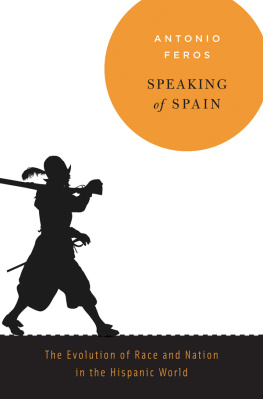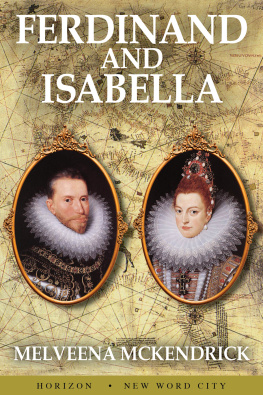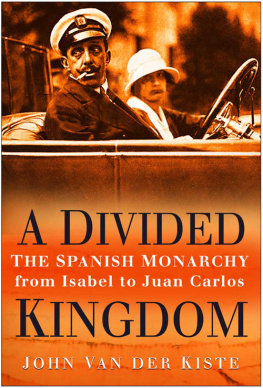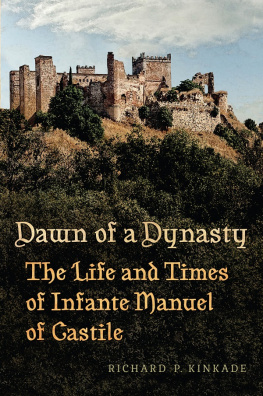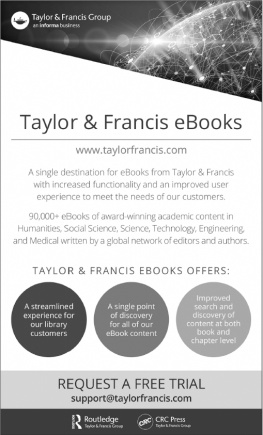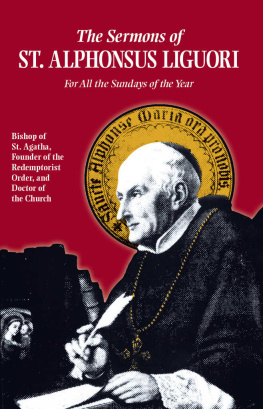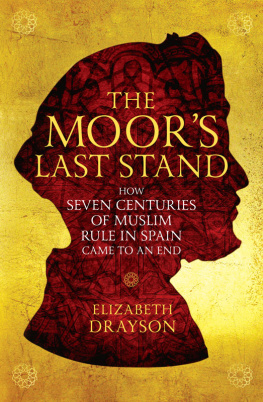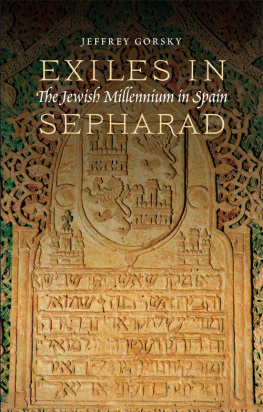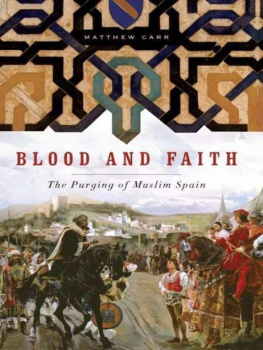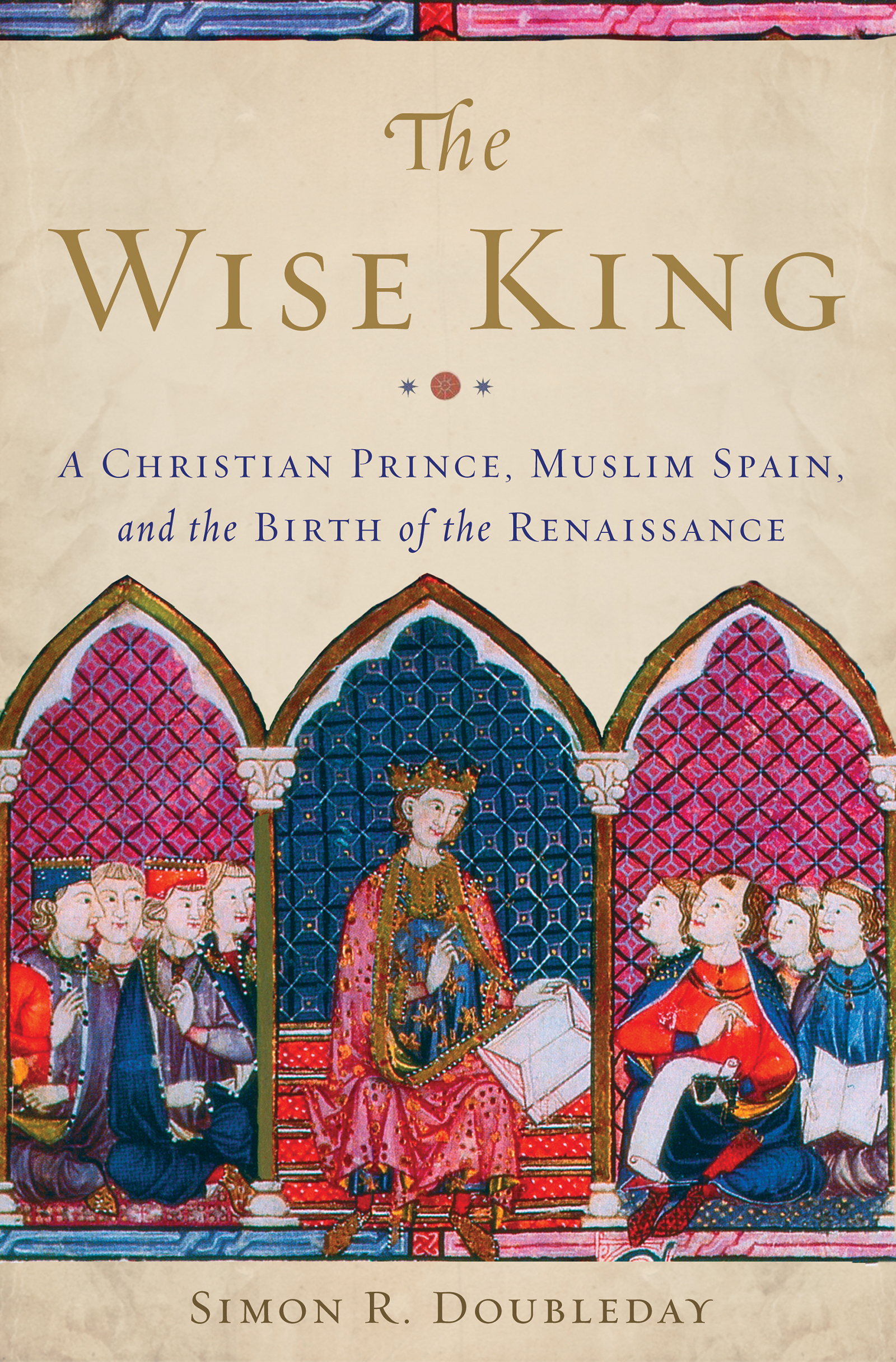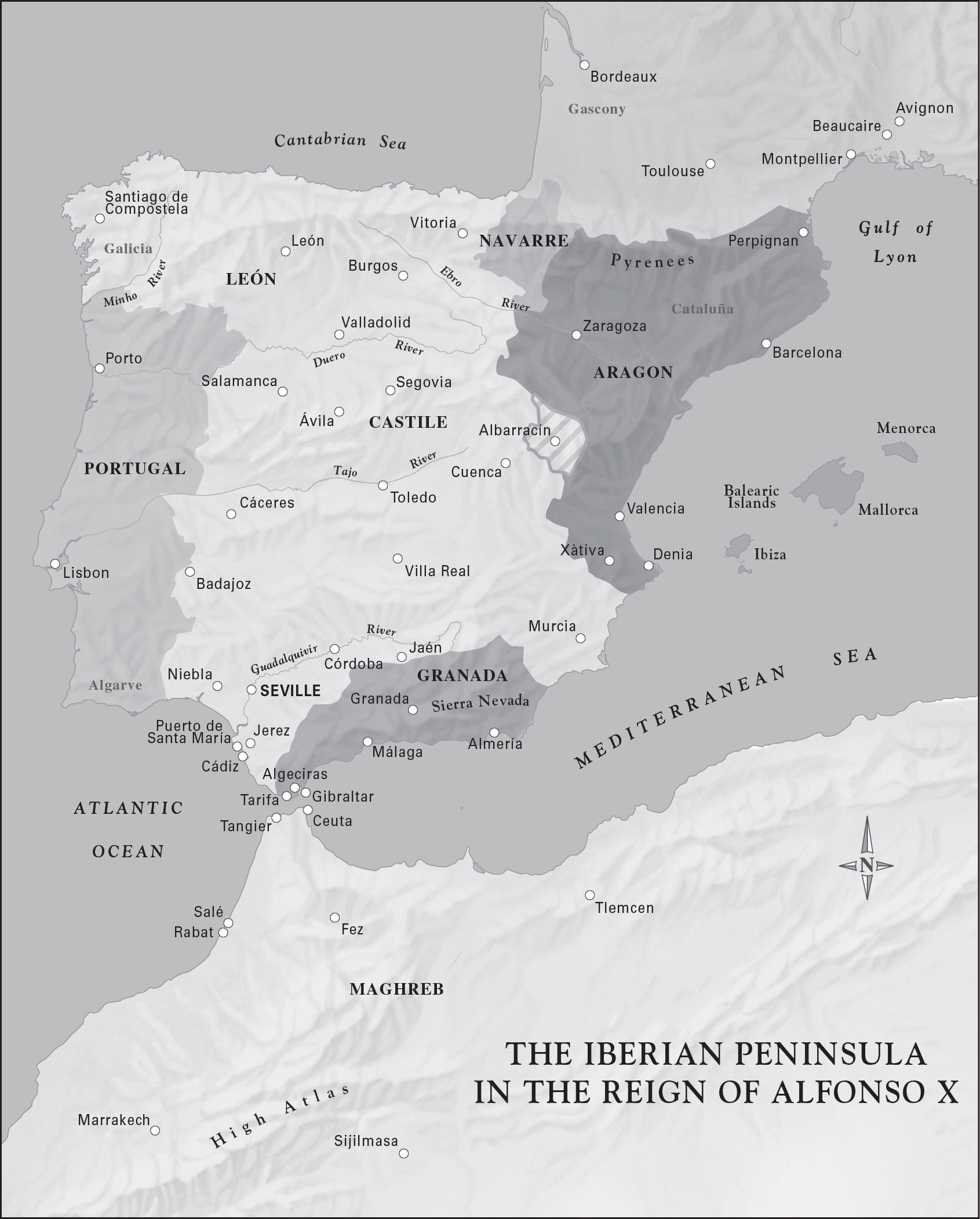Praise for The Wise King
This wonderful book by Simon Doubleday, an eminent scholar and leading expert on life in Medieval Europe, sets to rest for all time the fiction that the Renaissance was purely an Italian creation. Beautifully written and lyrical, full of fascinating details and surprisingly sexy, Doubledays book sheds new light on the remarkable life of Alfonso the Wise, and gives the Iberian peninsula the credit it deserves for serving as a hothouse of intellectual innovation. Spains contributions are often overlooked by European historians, and this book goes far in reestablishing the regions primacy as a thought leader on the continent.
Kirstin Downey, managing editor of Washington Watch and author of Woman Behind the New Deal and Isabella the Warrior Queen.
Simon Doubledays The Wise King delves into the legend and reality of Alfonso the Wise, medieval Spains most storied king. Doubleday skillfully locates this patron of culture, poet, crusader, would-be Roman emperor, ruler over Christians, Muslims, and Jews, within the broader historical trends, cultural developments, and noble networks of a medieval Europe on the cusp of the Renaissance. This book vividly brings to light a historical character who remains largely unknown to the English-speaking world.
Brian A. Catlos, professor of religious studies at the University of Colorado and author of Infidel Kings and Unholy Warriors
Simon Doubledays biography of the famous Spanish king Alfonso X is extremely original. Each chapter is written around a central aspect of Alfonsos character and interestslove, astronomy, hunting, fatherhood, friendship, healing, angerallowing Doubleday to tell the interweaving stories of a life, and providing the reader with a means to meditate on its resonance for his or her own life.
Jess R. Velasco, chair of the Department of Latin American and Iberian Cultures at Columbia University
Simon Doubledays book is an engaging and scintillating account of how the modern gaze into the medieval mirror can foster wisdom and humanity in contemporary readers, princes and paupers alike.
Stanislao Pugliese, professor of history at Hofstra University and author of the NBCC-nominated Bitter Spring: A Life of Ignazio Silone
The
Wise King
A Christian Prince, Muslim Spain, and the Birth of the Renaissance
Simon R. Doubleday
A Member of the Perseus Books Group
New York
Copyright 2015 by Simon R. Doubleday
Published by Basic Books,
A Member of the Perseus Books Group
All rights reserved. Printed in the United States of America. No part of this book may be reproduced in any manner whatsoever without written permission except in the case of brief quotations embodied in critical articles and reviews. For information, contact Basic Books, 250 West 57th Street, New York, NY 10107.
Books published by Basic Books are available at special discounts for bulk purchases in the United States by corporations, institutions, and other organizations. For more information, please contact the Special Markets Department at the Perseus Books Group, 2300 Chestnut Street, Suite 200, Philadelphia, PA 19103, or call (800) 810-4145, ext. 5000, or e-mail .
Designed by Cynthia Young
Map by Brian Shotwell
Library of Congress Cataloging-in-Publication Data
Doubleday, Simon R., author.
The wise king : a Christian prince, Muslim Spain, and the birth of the Renaissance / Simon R. Doubleday.
pages cm
Includes bibliographical references and index.
ISBN 978-0-465-07391-7 (e-book)
1. Alfonso X, King of Castile and Leon, 12211284. 2. Castile (Spain)HistoryAlfonso X, 12521284. 3. Castile (Spain)Kings and rulersBiography. I. Title.
DP140.3.D68 2015
946'.02092dc23
[B]
2015027714
10 9 8 7 6 5 4 3 2 1
For Benita, Beatriz, and Breogn
Contents
Sometime around the year 1237, a Spanish prince approaching the age of sixteen opened a book and began to read. The text was titled the Book of the Twelve Wise Men , and as the young man quickly realized, it was one of the mirrors for princes, the sage manuals of advice that medieval rulers valued so highly. Through stories and colorful examples, these exemplary texts allowed readers to sharpen their sense of how to live well. In a work of this kind, you might glimpse the space that separated the person you were from the person you might still become.
The book could not have fallen into the hands of a more receptive reader. The princewhose name was Alfonso and who, as the eldest sibling, was heir to the Spanish realms of Castile and Lenwas a sharp and curious young man, eager to advance his skills in the arts of ruling. His father, Fernando III, was a devastatingly effective military leader, the paragon of Christian warrior values, whose reign was a critical phase in the centuries-long campaign to colonize central and southern Spain, wresting the Iberian Peninsula from Islamic rule. The previous year, Fernando had occupied the beautiful city of Crdoba, which had once been the center of a powerful Spanish caliphate. Alfonso was in some ways cut from the same cloth: after his accession to the throne in 1252, he would pursue new conquests in the south and in North Africa. He aspired to become Holy Roman Emperor, a title that would allow him to take on the mantle of the supreme ninth-century ruler Charlemagne and fulfill a dream that had long been close to the hearts of the kings and queens of Castile. He hoped, in this way, to hold sway not only in a large part of Spain but also in a vast continental patchwork of territories stretching over much of Germany and Italy.
But Alfonsoa man with a voracious appetite for ideas and, paradoxically, a deep admirer of the culture that flourished in the same Muslim territories he was busily annexing by force of armswas more innovative than his father. As Alfonso X, king of Castile and Len, he would soon be celebrated as El Sabio, the Wise. A Renaissance man before the Renaissanceor, to be precise, before the Renaissance is traditionally believed to have begunAlfonso was the most intellectually impassioned of all medieval rulers and the most creatively inspired. While other kings sought strength through cultural renewal, none equaled his commitment to literature, architecture, and the arts; single-handedly, he exorcises the myth that medieval Europe was mired in a dark age.
Linked by marriage, faith, culture, and commerce to all the kingdoms of Christendom, he stood out among his illustrious contemporaries, his realm a beacon of light and learning. His half sister, LeonorEleanor of Castilehelped to transmit much of this cultural energy to northern Europe when, in a successful attempt to defuse tensions with Henry III of England, Alfonso arranged for her marriage to Prince Edward, the future Edward I. The union ushered in a period of close collaboration between the two expansionist realms, and despite the misgivings of her island subjects, Leonor would be instrumental in reenergizing cultural life at the English court.


